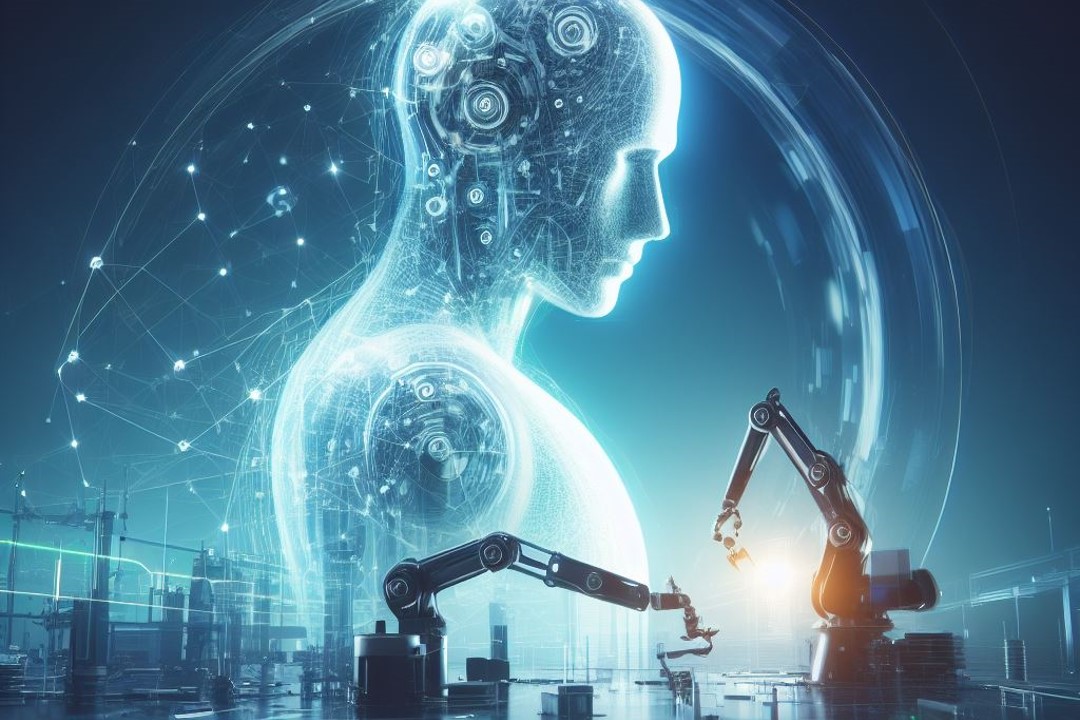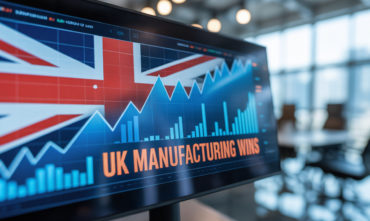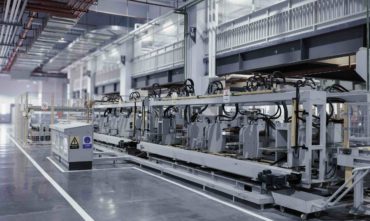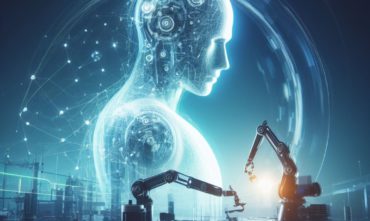
Harnessing Artificial Intelligence for Manufacturing Performance Improvement
Artificial Intelligence (AI)—once a concept boxed within the realm of science fiction and futuristic fantasies—has become a reality that is continuously reshaping various industries. One such field feeling the significant impact is manufacturing. This blog explores how businesses can harness AI to improve manufacturing performance, from refining product quality to enhancing operational efficiency.
Understanding AI in Manufacturing
Artificial intelligence, in a nutshell, refers to computer systems designed to mimic human intelligence, including aspects like learning, reasoning, problem-solving, perception, and language. We are primarily focusing on its pivotal role in manufacturing—a sector where machinery and processes are fine-tuned to infer patterns and insights from manufacturing data.
Two crucial techniques form the bedrock of AI’s transformative effect—Machine Learning (ML) and Deep Learning. ML facilitates automatic progress in computer performance via exposure to data, while Deep Learning, a subset of ML, deploys neural networks to analyses multitude facets of a given scenario.
Applications of AI in Manufacturing
AI in manufacturing may feel intangible, but its applications are concrete, quantifiable, and coupled with direct strategic impact. Here are key areas where AI has a discernible influence:
Predictive Maintenance: AI provides the capacity to predict possible machinery malfunction by identifying patterns in data accumulated from the machines. By fixing issues before they halt operations, unplanned downtime is significantly reduced.
Quality Control: From inspecting minute product details to assessing whole batch quality, machine learning algorithms can pinpoint product defects. This early detection system prevents the manufacture of flawed products to save costs and protect brand reputation.
Demand Forecasting: Market trends prediction is an essential aspect of manufacturing, and AI can do it with remarkable accuracy. Advanced data analyses enable producers to realign their production strategies according to the forecasted demand.
Supply Chain Optimisation: AI conducts extensive analysis of multiple supply chain factors, offering manufacturers an intelligence-informed logistical strategy that improves inventory management and distribution patterns.
Automation of Processes: Complex tasks, previously requiring human intervention, can now be done independently, thanks to AI-driven automation tools. This evolution reduces common human errors and improves factory safety.
Benefits of AI in Manufacturing
Increased Efficiency: AI can significantly ramp up efficiency in manufacturing processes on multiple levels. For instance, intelligent machines can analyse historical and real-time data from the production line to identify bottlenecks and make real-time adjustments, leading to more streamlined operations. AI systems can improve the speed and accuracy of routine tasks by automating them. Machine learning algorithms can also optimise resource utilisation, reducing waste, and improving overall effectiveness. Given these enhancements, operations run smoother, faster, and with less waste, thereby dramatically improving efficiency.
Reduced Operational Costs: The use of AI has financially tangible benefits. With predictive maintenance capabilities, AI can analyse patterns in machine data to predict potential malfunctions before they cause expensive downtime. This ability to forecast and act upon potential problems in advance can significantly reduce costs associated with last-minute equipment repairs or replacements. AI can automate many processes, freeing the workforce from routine tasks and reducing labour costs. AI can also help cut the costs associated with overproduction and inventory wastage by providing accurate demand forecasts.
Improved Quality: AI can effectively learn from data to discern anomalies or variations in manufacturing processes that could result in defects. This instant identification allows for speedy correction, minimising the chance of producing defective components or products. Machine vision, powered by AI, can also be used for stringent and objective quality checks, reducing human error, and thus ensuring consistent output quality. The end result is improvements in the final product quality, enhanced customer satisfaction, and a stronger brand reputation in the market.
Enhanced Safety: In the manufacturing industry, employee safety is vital. With AI, potentially hazardous tasks can be automated. For instance, in a high-temperature environment or one that involves handling hazardous materials, robots equipped with AI can execute tasks without risking human safety. Moreover, AI can monitor facilities for safety compliance and detect any potential threats, triggering alarms for immediate action. By taking on jobs that would put humans at risk and by monitoring worksites in real-time for potential safety hazards, AI significantly enhances worker safety.
Challenges and Solutions
Data Privacy: With AI systems increasingly analysing vast amounts of data, privacy concerns are rising. Manufacturers collect operational data, customer data, and more, which if not secured properly, can easily be used maliciously, damaging both customers and businesses. However, AI itself provides a solution in terms of ‘Differential Privacy.’ This technology adds a degree of randomness to data, without affecting the broader analyses. This ensures that individual data entries cannot be reversed-engineered, protected from potential intrusion.
Cost of Implementation: Implementing AI in manufacturing is often seen as a financially intensive approach. It requires considerable upfront investment for acquiring necessary hardware, developing AI models, integrating with existing systems, and training staff. However, a long-view perspective suggests these costs are recoverable given the long-term benefits. Enhanced operational efficiency, improved product quality, reduced downtime, and minimised wastage result in substantial cost savings over time, serving as the return on investment.
Lack of Skills: AI requires a specific set of skills, which if not present in the current workforce can pose learning and implementation challenges. It is essential to impart comprehensive AI training to employees— to introduce AI concepts, demonstrate its application, and make them feel comfortable with AI tools. Additionally, aggressive hiring strategies focusing on attracting AI-skilled workforce can be incorporated. Partnerships with educational institutions for tailored programs or accelerators for AI startups could also be a pathway to gain access to skills and innovative solutions.
Key Takeaway[s]
Harnessing the power of AI promises a bright future for the manufacturing industry. The possibilities are endless, the improvements significant, and the breakthroughs rewarding. It is a realm of opportunities businesses must explore, offsetting challenges with innovative solutions while continuously devising ways to keep up with AI advancements. Whether it’s to respond to market volatility, improve product quality or enhance efficiency, the introduction of AI into manufacturing indeed signifies a significant leap forward.
More Blog Posts







To leave me a message or book a return call at a time that suits you








